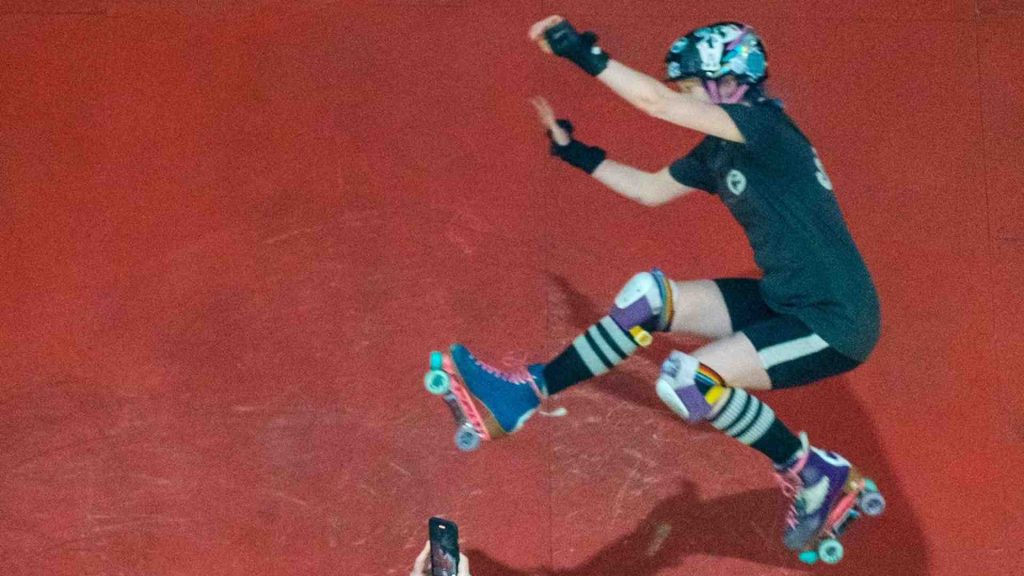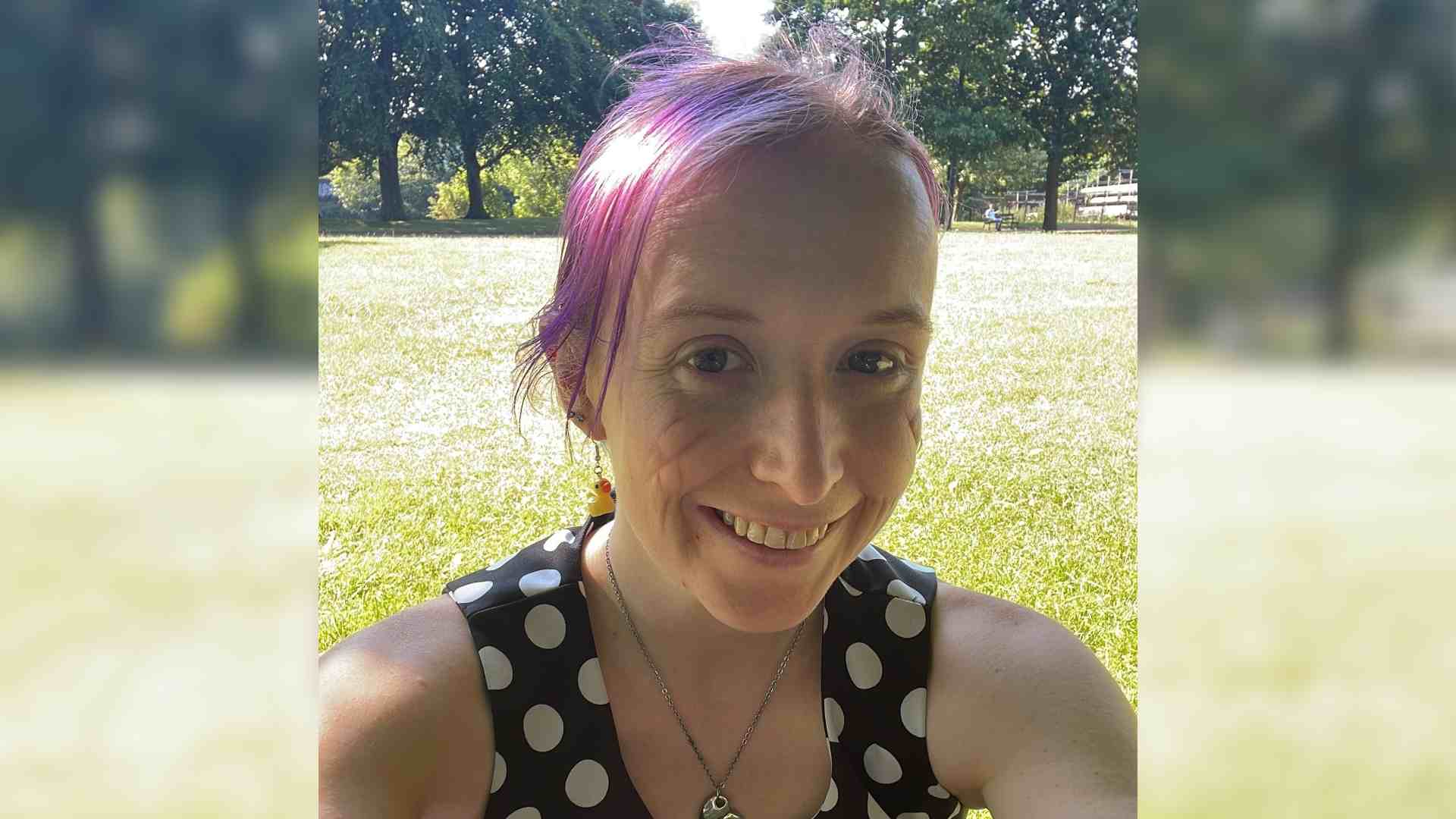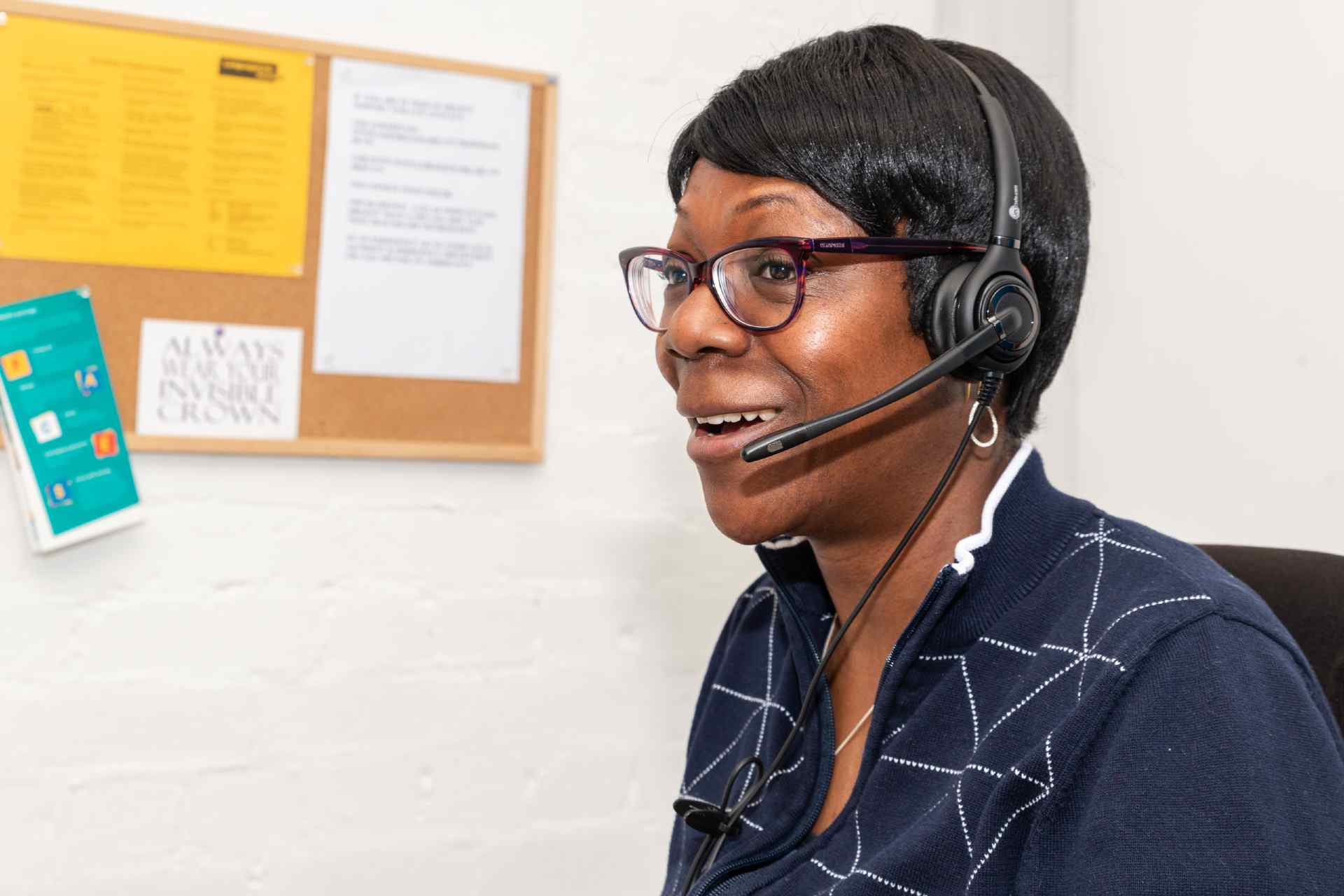[Please note: content warning for self-harm in the piece below]
I’m Ellie and I have complex mental health problems stemming from past trauma. I have struggled with self-harm for many years, but the way that this has affected me the most is the reactions I get to the visible marks on my face.
It is very rare for people to self-harm their face, and as a result, it is poorly understood and getting the psychological help I need has been really difficult. It also brings with it a huge amount of shame – for many years I was afraid of accessing support around having a visible difference because it is all self-inflicted. My face and my body is covered in many scars. But even though it is self-inflicted, I want people to know that people who harm themselves do it because it’s the most effective coping mechanism they have available to them at the time. Treatment for self-harm is difficult to come by and many people are left to recover themselves with no help from services.
I have been met with so many stigmatic and horrible views. I have been told I must only be doing it for attention, as it is so visible on my face. In fact, it’s the exact opposite – I was so ashamed of my face sometimes that I would hide behind hoods and hats. I have had people in the street stare at me, shout across the road “what have you done to your face?”, and I’ve had people shield their kids from me. Concerningly, I’ve had a doctor refuse to stitch an open wound on my cheek because “you have plenty of scars, one more doesn’t matter”. I left, untreated, with those words going round in my head, which ultimately led to a much more serious incident that left me with 3rd degree burns on my face.
Over time, I realised that I shouldn’t have to cover up or hide myself away. It’s other people’s problem if they have an issue with it.
A one-off comment might not seem like much, but that person is experiencing the same comments numerous times a day and may have done so all their lives. For people who have acquired a visible difference, it may have been (or still be) a traumatic time for that individual, and comments can take them back to that point. People need to be more considerate with their words and show compassion rather than judgement.
Better education surrounding visible differences and mental health is key for medical professionals. They see all sorts every day and can forget how much something like a visible difference can affect the life of the person living with it. If I feel able to, and like the professional is open to it, I will offer some advice and an opportunity to learn – most are really keen to improve their practice and enjoy learning from the patients themselves.
Over time, I realised that I shouldn’t have to cover up or hide myself away. It’s other people’s problem if they have an issue with it. I lead an active life as a roller skater, hula hooper and acrobat, so it’s not practical for me to always be covered up. My lifestyle shouldn’t have to be impacted because of other people’s opinions.

Skating is one of Ellie’s passions
I’ve had to come to terms with my visible difference, and time spent on the burns unit, alongside the support from the staff and the mental health services there, has allowed me to start to face up to the problem, rather than brushing it under the carpet as I did before.
With my facial burn, what really helped is that the first morning I was in hospital, one of the nurses sat me down and talked to me about having a changed appearance. She signposted me to Changing Faces and I found all the resources very useful.
Making the jump from hospital to the real world was scary – as soon as I left the grounds the stares and comments that I got were overwhelming. This really upset me initially but then I re-read some of the Changing Faces guidance on coping with stares. The advice I found the most useful, and still use now, is where when you catch someone staring, you make eye contact with them and 9 times out of 10 they will look away. It made me feel so empowered, like I had laser beams for eyes! It helped me take ownership of what was happening around me and helped me continue going out and about.
As for questions, how I handle these depends on how I’m feeling and who is asking me. Generally, I just say, “I don’t want to talk about it” and if someone asks me more rudely or persistently, I say, “It’s none of your business”. Some people are just concerned for my wellbeing, so I assure them I’m okay, but still firmly say “I don’t want to talk about it”. If people keep asking, then I will walk away. I do have a lot of friends who will speak up on my behalf when I’m with them too.
I have to wear a pressure garment on my head for certain hours of the day and I’m so far surprised that I have less comments about this than my scars themselves. I’m happy to talk about my visible difference with people I’m close to – in fact, I would prefer that they did ask about it, as it shows they feel comfortable around me. After my worst injury, a lot of my friends needed some time to get used to seeing it, to ask questions, to know I wasn’t in pain, to have a good look at it… then after that it was fine, just part of who I am.
Being different is cool! Working with it rather than fighting it can really help your self-esteem.
Burns take a lot of caring for, and this has been a really difficult journey for me as I usually struggle to look after my face. However, with support around me I have started to learn to take care of it. Making the decision to accept a skin graft was one of the most difficult decisions I had to make, but an important one, as it was a huge step in learning to respect my own face. I’m finally starting to move on and learn to accept myself.
In recent years, I’ve achieved more than anyone thought I could. I’ve held down a job in the NHS for five years, becoming known locally and nationally for the work I do, which is a dream come true. I work as a Lived Experience Research Ambassador in mental health, helping service users to take an active part in research – including advising research teams and doing my own. I’ve even had a few things published and there’s more to come!
I also use my lived experience to educate, train and teach at many universities around my region, as well as speak at national conferences. Work has given me a confidence I never had and helped me reframe my experiences into something positive.
While a visible difference is often a big part of who you are, it doesn’t define you. Being different is cool! Working with it rather than fighting it can really help your self-esteem. Only you can write your own narrative – make this next chapter your plot twist!

